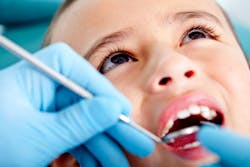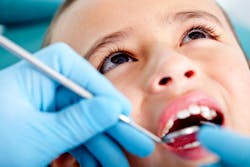Why the dental industry wants exemption from Obamacare
January 25, 2013
Recently, Americans for Tax Reform published a study on the Affordable Care Act (ACA), often referred to as “Obamacare,” and its potential effect on the cost of braces. There are two main issues regarding the new law that will affect dentistry in particular, and many experts in the field view the changes as harmful to the industry rather than helpful.
The first issue is the medical device tax, a 2.3% tax on the sales of medical devices, to be paid by the manufacturer. The fear is that this tax will be passed down to the supplier, then the dentist, and eventually, the consumer. The tax is seen as unfair, since dental coverage is separated from medical coverage, which is the focus of the ACA. The second issue is the new cap on medical expense flexible spending accounts, health savings accounts that many companies offer to their employees. With medical expense FSAs, employees are able to save untaxed income to be used for approved medical services. Before, each company set a cap for how much employees could put in their FSAs. Now, there is a federal cap of $2,500.
With the combination of the consumer likely paying for the medical device tax and not having as much untaxed money available in their medical FSAs, dentistry seems to be taking a hit rather than benefitting from the new health-care law.
Post-election: The effects of Obamacare on dentistry
UPDATE: The fiscal cliff and dentistry: What dentists and dental team members need to know
“The Affordable Care Act is a misnomer,” said John Buzzatto, DMD, MDS, and president of the American Association of Orthodontists. “It’s making orthodontics less affordable, rather than more affordable.”
Dr. Buzzatto isn’t alone in his opinion. In fact, he represents the feelings held by most of the dental industry. Bennet Napier, the executive director of the National Association of Dental Laboratories, shares Dr. Buzzatto’s sentiments. “Based on dentistry’s impact from the economy right now, it’s adding insult to injury. I don’t think anybody within dentistry is going to be immune to this tax. Everyone will feel it,” he promised, “either directly or indirectly.”
The economy, indeed, has hit orthodontics particularly hard. The AAO has seen a decrease in busyness in orthodontic practices recently. With the economy in poor shape, many doctors have been reluctant to increase their fees – but with the cost of overhead increasing due to the medical device tax, they may have to.
“It further complicates the affordability of dentistry,” confirmed Steven Katz, DMD, MAGD, a cosmetic and general dentist from Long Island. “When we have prosthetic appliances that are going to be taxed, those fees are going to be passed down to patients who are already having a hard time affording dentistry.”
Dentists, orthodontists, and dental industry experts have been claiming that the tax is unfair to dentistry because it doesn’t benefit from the expansion of care that the ACA promises. Yet, recent developments in insurance planning have shown that part of the essential health benefits of small companies must includepediatric dental coverage. Soon, more children will be granted dental benefits that they didn’t have before, as a result of the ACA.


